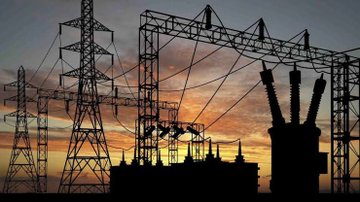In a frustrating and familiar situation, Nigeria is grappling with a nationwide blackout following the collapse of its national grid on Saturday morning, marking the third grid failure within a week. Reports of power outages have come from major cities such as Abuja, Lagos, and various other parts of the country. As of now, there has been no official response from the Transmission Company of Nigeria (TCN), which is responsible for managing the national power transmission system.
The latest grid collapse was confirmed by the national grid monitor, who posted, “National Grid suffers a major setback.” Alongside the announcement, a list of distribution companies (DisCos) that were affected revealed a complete halt in power transmission. The affected DisCos include Abuja, Benin, Eko, Enugu, Ibadan, Ikeja, Jos, Kaduna, Kano, Port Harcourt, and Yola, all reporting a zero megawatt (MW) load.
This latest incident follows two other collapses earlier in the week, one on Monday and another on Wednesday. On Monday, the national grid experienced a partial disturbance around 6:48 p.m., which led to widespread power outages across the country. TCN’s General Manager of Public Affairs, Ndidi Mbah, issued a statement on Wednesday claiming that power had been restored in the Abuja area and several major distribution centers nationwide. However, the ongoing restoration process was still not completed at the time.
A Recurrent Problem
For many Nigerians, these blackouts are not a new experience. Power cuts have long been a part of daily life, and the national grid’s frequent collapses only compound the frustrations of citizens and businesses alike. Despite numerous attempts by authorities to address the problem, the underlying issues remain unresolved.
Nigeria’s power generation capacity hovers between 4,000 to 4,500 MW, which is woefully inadequate for a population of over 200 million people. This chronic power shortage often leads to grid collapses, as the system is unable to cope with the overwhelming demand for electricity.
“The grid is overstretched and outdated. It’s like an overworked engine that’s asked to do more than it can handle,” said a power sector analyst, describing the situation. “Every time demand increases, especially in high-population areas like Lagos, the system becomes overloaded and crashes.”
The Blame Game Continues
Each time a grid collapse occurs, it’s met with a flurry of accusations between the different players in the power sector. The distribution companies (DisCos) and generation companies (GenCos) often blame one another for the failure, while the TCN typically attributes the cause to technical faults or equipment failures.
Monday’s collapse saw the TCN admitting to a “partial disturbance,” but detailed explanations of why the grid continues to falter have remained elusive. The latest collapse, occurring just days after power had supposedly been restored, raises serious questions about the grid’s stability and the effectiveness of the recovery process.
Industry experts argue that the grid’s outdated infrastructure is a significant contributor to the recurring problems. Many of the components in the grid system are decades old and prone to breaking down under increased pressure. Despite efforts to modernize parts of the power network, large portions remain antiquated and incapable of supporting Nigeria’s energy needs.
Citizens Left in the Dark
The most immediate impact of these frequent grid collapses is felt by the Nigerian populace, who must contend with life in the dark. Households rely on expensive backup generators to power their homes during outages, while businesses are forced to bear additional operational costs, reducing profitability.
“There’s never any warning when these collapses happen, and we have no idea how long the power will be out,” said a Lagos resident. “It’s frustrating because the cost of diesel is high, and we can’t afford to keep running generators every time the grid collapses.”
The implications extend beyond individual households and businesses, as the unreliable power supply also stifles economic growth. Industries that depend on consistent electricity, such as manufacturing and telecommunications, are forced to scale back operations, contributing to the country’s slow economic development.
A Call for Solutions
While the TCN has made promises of ongoing grid restoration, many Nigerians are skeptical. The recurring nature of these grid failures suggests that a more comprehensive and long-term solution is needed. Experts are calling for urgent investment in modernizing the grid’s infrastructure, expanding power generation capacity, and improving the overall management of the energy sector.
As the country waits for a permanent solution, the Nigerian government and relevant authorities will need to act swiftly to prevent further collapses, and reassure the public that their basic need for electricity can be met consistently.
For now, the national grid remains fragile, with no clear resolution in sight. Nigerians, meanwhile, continue to adapt to life in the dark, hoping that one day, a more reliable and robust power system will finally emerge.
